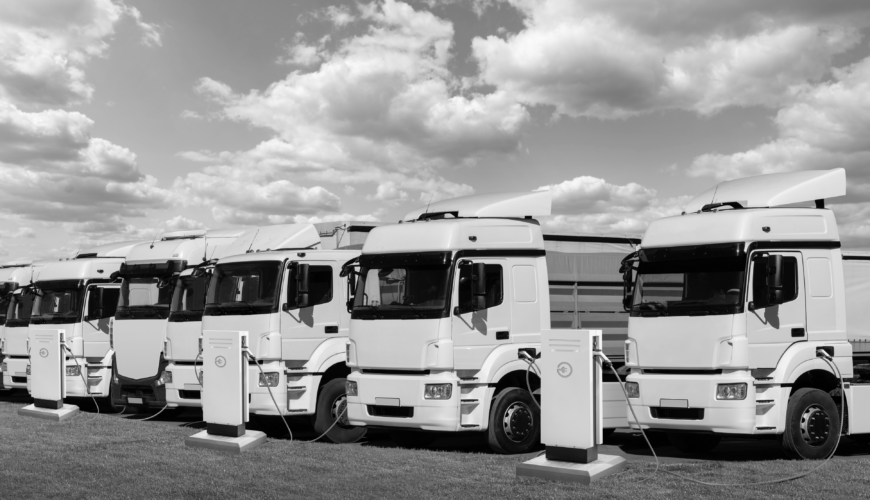Logistics companies are considering EV trucks, for a growing number of reasons. As the world attempts to wean off fossil fuels in an effort to both meet governmental and business sustainability goals, more work is underway to accelerate the adoption of electric vehicle trucks. By putting more EV trucks on the road, more pieces of the supply chain will green up, helping with the overall picture. This past week, Cummins, Daimler Trucks and Paccar took a big step in that direction.
The three OEM trucking companies announced a joint venture to manufacture lithium-ion-phosphate (LFP) batteries for commercial electric trucks. Each partner will have a 30 percent stake in the project, and they will team up with a China-based battery manufacturer as their technology partner. Total investment is expected to be in the range of $2 to $3 billion for the factory.
By joining forces, the trucking manufacturers say they will be able to create the necessary scale for access to cost effective battery cell technology. The companies say the plant will both provide a giant step toward decarbonization, along with value for commercial vehicle customers in North America.
Should the partnership make a substantial dent in the number of gas-powered class 8 trucks, the effort might go a long way toward the government’s goal of achieving zero emissions vehicles by 2030. Trucks today emit seven percent of U.S. greenhouse gas emissions, and 18 percent of all U.S. vehicle emissions, likely one of the supply chain’s largest single contributions to climate change.
Financial Benefits to EV Trucks
While many companies remain daunted by the higher upfront cost of electric trucks, over the long run, they are cheaper than their gas-powered counterparts. Electric is less expensive than diesel fuel, and electricity rates remain relatively stable. This allows companies to factor in cost predictability to their equation. EV trucks also require less maintenance, because their drivetrains are simpler than gas-powered trucks. A 2021 study out of the Lawrence Berkeley National Lab estimated that an EV truck with a range of 375 miles would have 13 percent lower total cost of ownership than a diesel model over the course of a truck’s average 15-year lifetime—to a tune of $200,000 in net savings. With a lower center of gravity thanks to the location of their motors and batteries, EV trucks also tend to be safer, causing fewer roll overs.
Now is a good time to consider EV trucks, for multiple reasons. While there is still work to be done on the infrastructure, the effort is well under way to expand the network of fast charging stations across the country. Additionally, the Inflation Reduction Act and Infrastructure Investment and Jobs Act are addressing both the cost and infrastructure challenges. The former is also offering substantial incentives for companies who take steps toward greener supply chains. And with more fleets committing to EV trucks—along with the new EV battery manufacturing plant just announced—there’s reason to feel optimistic that electric trucks will be widespread sooner rather than later.


